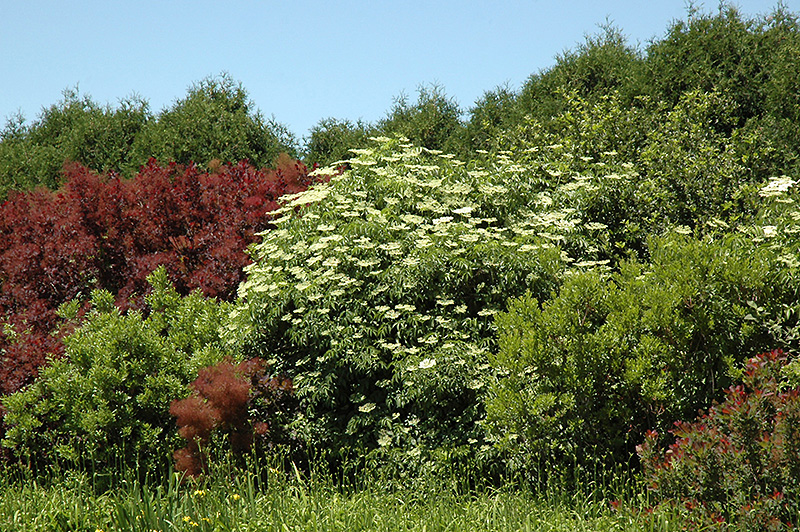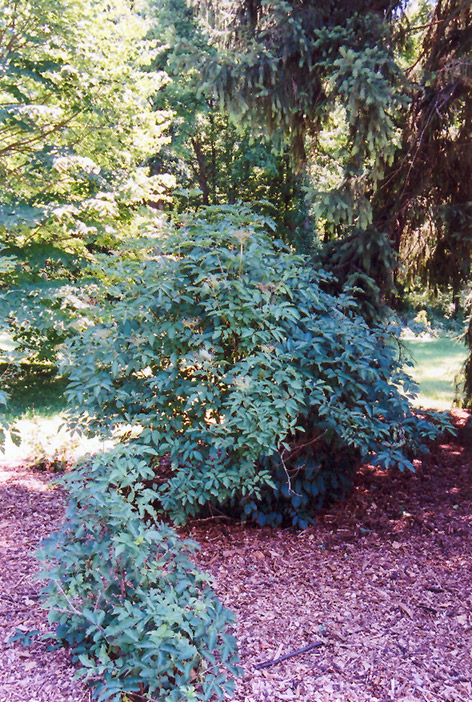Height: 15 feet
Spread: 12 feet
Sunlight:
![]()
![]()
Hardiness Zone: 4
Other Names: Common Elder
Description:
A large bushy shrub or multi-stemmed tree featuring clusters of small, creamy white flowers in spring followed by black berries and thick, pithy stems, quite coarse in winter; very adaptable, survives with minimal care but tends to sucker
Ornamental Features
European Elder features showy clusters of fragrant buttery yellow flowers held atop the branches in late spring. It has dark green deciduous foliage. The compound leaves turn yellow in fall. The black fruits are held in clusters in early fall.
Landscape Attributes
European Elder is a multi-stemmed deciduous shrub with an upright spreading habit of growth. Its relatively coarse texture can be used to stand it apart from other landscape plants with finer foliage.
This is a high maintenance shrub that will require regular care and upkeep, and is best pruned in late winter once the threat of extreme cold has passed. It is a good choice for attracting birds to your yard. Gardeners should be aware of the following characteristic(s) that may warrant special consideration;
- Suckering
European Elder is recommended for the following landscape applications;
- Hedges/Screening
- General Garden Use
- Naturalizing And Woodland Gardens
Planting & Growing
European Elder will grow to be about 15 feet tall at maturity, with a spread of 12 feet. It tends to be a little leggy, with a typical clearance of 2 feet from the ground, and is suitable for planting under power lines. It grows at a fast rate, and under ideal conditions can be expected to live for approximately 30 years.
This shrub does best in full sun to partial shade. It is very adaptable to both dry and moist locations, and should do just fine under average home landscape conditions. It may require supplemental watering during periods of drought or extended heat. It is not particular as to soil type or pH. It is highly tolerant of urban pollution and will even thrive in inner city environments. This species is not originally from North America.


